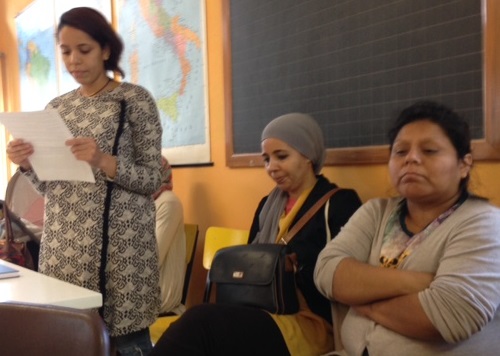In a recent visit to the Sisters of St. Joseph in northern Italy, specifically Torino, Aoste, Pinerolo and Cuneo, I became more aware of the situation of refugees and migrants and how the Sisters are engaged with these vulnerable groups. In Torino the Italian Federation of the Sisters of St. Joseph is engaged in a collaborative ministry dedicated to caring for the physical, psychological, mental, spiritual and social needs of the migrants and refugees.
In conversation with persons directly engaged with migrants and refugees we received first hand information on the situation. In the past few years Italy has been faced with a considerable migration flow. In spite of efforts to deal with it, Italy has been unable to cope in a fully productive way with the phenomenon. The first response to asylum seekers has been flawed and inadequate. Many are housed in hotel facilities where they get shelter, food and basic clothing, but no guidance for how to become independent from the system. Usually asylum seekers and refugees spend more than a year waiting to be recognized as such, without being able to attend training courses or look for a job. Once they have obtained the refugee status, they must leave the facility within a few months.
Civil Society is trying to respond to this need. It is the ordinary people and volunteer organizations that offer different services. Their aim is not only to provide the refugees and migrants with food, housing, clothing but also to help them know about and understand the different local services. They familiarize them with the school system, legal assistance, the health care system, while building friendship and relationships, and which is the heart of our Charism.
I also learned that two of our sisters, Marirosa and Patricia, from the Congregations of the Sisters of St. Joseph of Pinerolo, recently volunteered at a refugee center in Kitsika Greece. These particular migrants and refugees have witnessed genocide in all its horror. And now they are living in conditions that are barely human. Adults and children are in need of food, clothing and care. On their return to Italy they continue to work for the refugees, collecting money, food and warm clothing which they took at the end of October, to help the people endure the cold winter.
S. Justine Gitanjali Senapati

